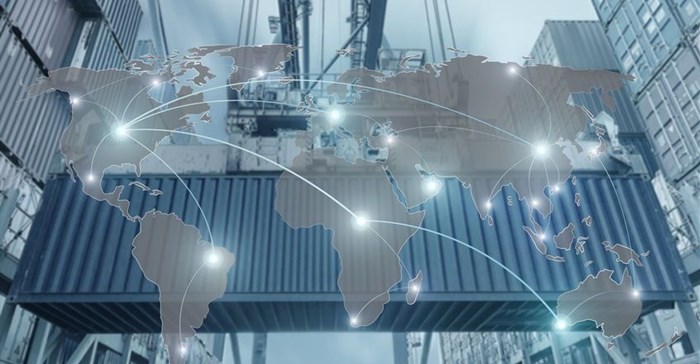Africa Trade Forum 2018 goes to Nigeria

This is why the Africa Trade Forum 2018, hosted by Nigeria’s Ministry of Industry, Trade and Investment, set to take place 2-3 November, 2018 in Lagos, is so important. It is co-organised by the United Nations Economic Commission for Africa (ECA), The Rockefeller Foundation, and the African Union Commission (AUC).
The Forum will bring together stakeholders from across the continent, from political and governance spheres, the private sector and entrepreneurs, philanthropies, academia, researchers, and development partners, to discuss the process for realising the African Continental Free Trade Area (AfCFTA).
Largest trading bloc
AfCFTA was signed in March 2018 by 44 African countries and, if ratified, will become one of the world’s largest trading blocs. It is also the biggest trade agreement signed since the World Trade Organisation (WTO) was established, bringing together 1.3 billion people with a combined gross domestic product (GDP) of more than $2 trillion in a single market. The agreement aims to provide improved competition and lower business costs.
The Forum’s purpose is to look into the challenges and opportunities of the AfCFTA in individual African states, and to better understand how AfCFTA can drive economic development and prosperity on the continent for all of Africa’s citizens.
“The idea of an integrated African market to industrialise Africa, spur growth, enhance welfare and create jobs has been around for a long time. However, with the actual emergence of the AfCFTA in 2018, the decision was taken by the Government to mobilise stakeholders in the Nigerian economy to understand its details, interpret its opportunities and reorganise our economic system for coherence and coordination, if the opportunities of the AfCFTA are to be realised and maximised. “This Forum is a unique opportunity to proactively engage with a wide range of stakeholders to ensure that AfCFTA works for Nigeria,” said Dr Okechukwu Enelamah, Nigeria’s Minister of Industry, Trade and Investment.
AfCFTA offers a long-awaited platform for Africa to ramp up its industrialization through various channels such as eliminating tariffs on intra-African trade, which will result in more competitive services that reduce business costs, improve business efficiency, and enhance value to consumers.
Economic Commission for Africa (ECA) executive secretary Vera Songwe says in an age of trade wars, Africa is sending a strong message that trade deals and reforms can be approached through consensus-building and cooperation, leaving no one behind.
"In order to ensure the African Continental Free Trade Area has a game-changing impact on African economies, we must now develop clear strategies for product diversification and inclusive implementation. The speed at which countries have signed and are now ratifying the AfCFTA agreement underscores the momentum behind this African flagship initiative," the ECA Chief said.
Industrialisation of Africa
According to ECA studies, Africa is less industrialised today than it was three decades ago. The continent’s manufacturing share of output and exports has steadily declined, and Africa’s exports remain largely concentrated in primary commodities and raw materials. Through AfCFTA, industrialisation will help create employment for Africa’s growing youth population, thereby improving livelihoods, access to education and health.
Booming multi-sectoral growth
The agreement is also expected to lead to booming multi-sectoral growth in areas including agriculture, where AfCFTA will provide opportunities to drive agri-business and provide access to new regional markets for farmers and regional agro-value chains. With regard to access to electricity, about 600 million Africans still lack access to electricity. If current trends continue, it could take up to the year 2080 until Africa achieves full electrification. AfCFTA would help build momentum on establishing an integrated set of platforms and partnerships to drive regional power systems, accelerate energy access for productive use, and bring down the costs of Africa’s power generation.
“We are delighted to support ECA and AUC to set the table and steer the conversation on the AfCFTA with Africa’s leaders. This Forum is an opportunity to work together to address challenges, discuss solutions, and increase awareness about the agreement’s ability to be a transformative tool that improves the lives of millions of Africans, especially the most vulnerable,” said Mamadou Biteye, managing director, Africa, for The Rockefeller Foundation.
Implementation
The trade forum will provide a platform to discuss Africa’s participation and ownership of the AfCFTA objectives and examine how intra-regional trade can enable prosperity in Africa. The Forum will bring together stakeholders to determine how nations can move from a signed AfCFTA to real action and implementation.
“The AfCFTA is critical for Africa’s economic competitiveness and development. Once the African Continental Free Trade Area starts to fully function, African enterprises will be exposed to large economies of scale and scope. With expanded production and competitiveness, as well as increased investment, our enterprises will be able to increase Africa’s share of global trade, creating opportunities for economic development as well as the prosperity of African countries,” said the Africa Union Commission.
Related
#BizTrends2025: Unleashing Africa’s economic potential through transformative logistics 13 Jan 2025 Boosting trade with open skies, ports, and streamlined visas in Africa 26 Jul 2024 African countries could unlock billions in local and global trade – what’s working and what’s not 13 Jun 2024 Afreximbank Q1 2024: Resilience amid challenges, income surges 20 May 2024 No more business-as-usual in African capital markets 22 Mar 2024
























